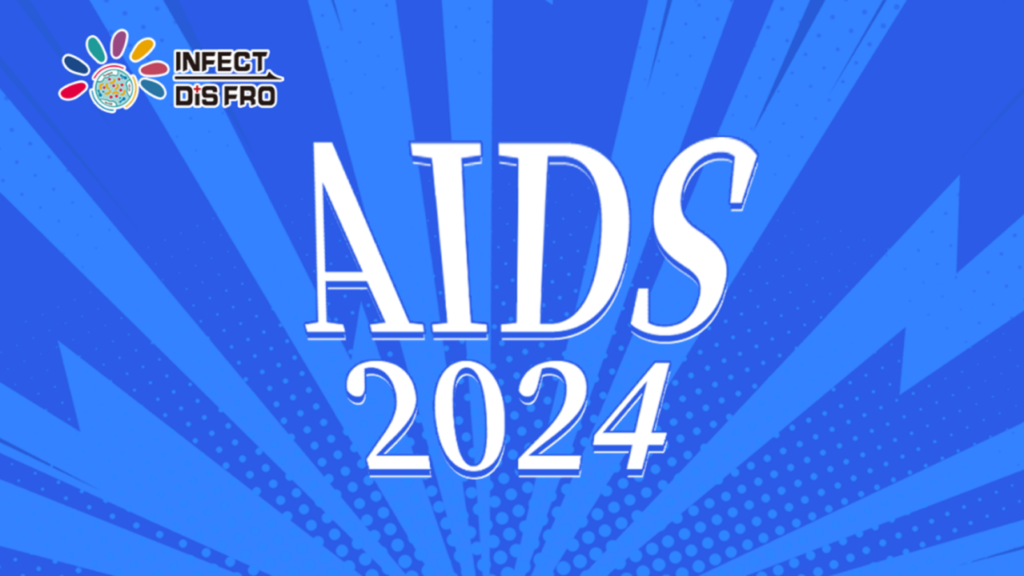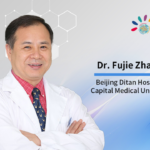
Editor's Note: From July 22-26, 2024, the 25th International AIDS Conference (AIDS 2024) was held in Munich, Germany. As a key player in the global fight against AIDS, China has consistently made significant contributions. At this conference, the China Special Session, titled "Ending AIDS in China: Challenges and Strategies," was jointly organized by the Chinese Association of STD and AIDS Prevention and Control, the Chinese Center for Disease Control and Prevention AIDS Center, and the Chinese Preventive Medicine Association. This session not only highlighted China's achievements in HIV/AIDS prevention and control but also explored the challenges ahead and the future direction of global AIDS prevention, providing new insights and momentum for the worldwide fight against AIDS.The session was chaired by Dr. Minghui Ren, Director of the Global Health Institute at Peking University. In an inspiring opening speech, Yang Hao, President of the Chinese Association of STD and AIDS Prevention and Control (CASAPC), reviewed the unwavering commitment and relentless efforts of the Chinese government in combating AIDS. Eamonn Murphy, Regional Director for Asia-Pacific, Eastern Europe, and Central Asia at UNAIDS, and Dr. Meg Doherty, Director of the WHO Global HIV, Hepatitis, and STIs Programs, both praised China’s significant progress in AIDS prevention and control from different perspectives.
Following this, Dr. Mengjie Han, Chief Expert on AIDS Prevention at the Chinese CDC, provided a comprehensive analysis of the HIV/AIDS epidemic in China in his academic report. Xia Liu, Deputy Secretary-General of the Chinese Preventive Medicine Association, shared valuable experiences of non-governmental organization (NGO) funds in supporting HIV prevention and control. Dr. Guang Zhang, Director of the First Department of Projects at CASAPC, presented a detailed account of the successful practices in HIV prevention and control in key regions of China, using Liangshan Prefecture as an example. In the concluding remarks, Academician Hong Shang, Vice President of CASAPC and President of the First Hospital of China Medical University, emphasized that while China has made remarkable achievements in the field of HIV prevention, there is still a need for global cooperation to jointly address the life-threatening challenges posed by HIV infection and transmission, with the ultimate goal of achieving the WHO’s “95-95-95” targets to end the AIDS epidemic.
The China Special Session at the AIDS 2024 Conference provided not only a platform for showcasing but also for exchange and collaboration. Experts, scholars, policymakers, and NGOs from China and around the world shared experiences, exchanged ideas, and sought strategies to jointly tackle global public health challenges.
The successful hosting of the China Special Session underscored the irreplaceable role of international cooperation in the fight against AIDS. In the context of a global pandemic, cooperation among countries has become key to overcoming challenges. By sharing its successful experiences, such as the “three-in-one” work mechanism, sex education promotion, condom distribution, and progress toward the “95-95-95” targets, China demonstrated its governmental determination and innovative capabilities, promoting international recognition and collaboration in AIDS prevention strategies. Chinese experts also highlighted the importance of innovative service models, such as the promotion of self-testing and PrEP, which have significantly improved HIV testing and treatment efficiency, reduced infection risks, and added new momentum to global prevention strategies. Additionally, the close coordination between community organizations and local governments, through targeted interventions and early detection, has effectively enhanced prevention outcomes.
Looking ahead, while China has made significant progress in HIV prevention, challenges remain, such as the lag in vaccine development and insufficient social participation. This China Special Session at the AIDS conference delved into strategies for addressing these challenges through strengthening scientific innovation, deepening international cooperation, and expanding social mobilization. Importantly, the younger generation has been entrusted with the responsibility of driving innovation and maintaining the momentum of prevention efforts. By increasing investment in their capacity building and research, future leaders can be nurtured to ensure the sustained advancement of global anti-AIDS efforts.
The successful hosting of the China Special Session at the 25th AIDS Conference not only showcased China’s contributions to the global fight against AIDS but also highlighted the potential for future cooperation and collective progress. With global efforts combined, we have reason to believe that the vision of an “AIDS-free” world is gradually becoming a reality. Through this conference, China once again demonstrated its determination and capability in the field of public health, showcasing Chinese wisdom and strength to the world.


